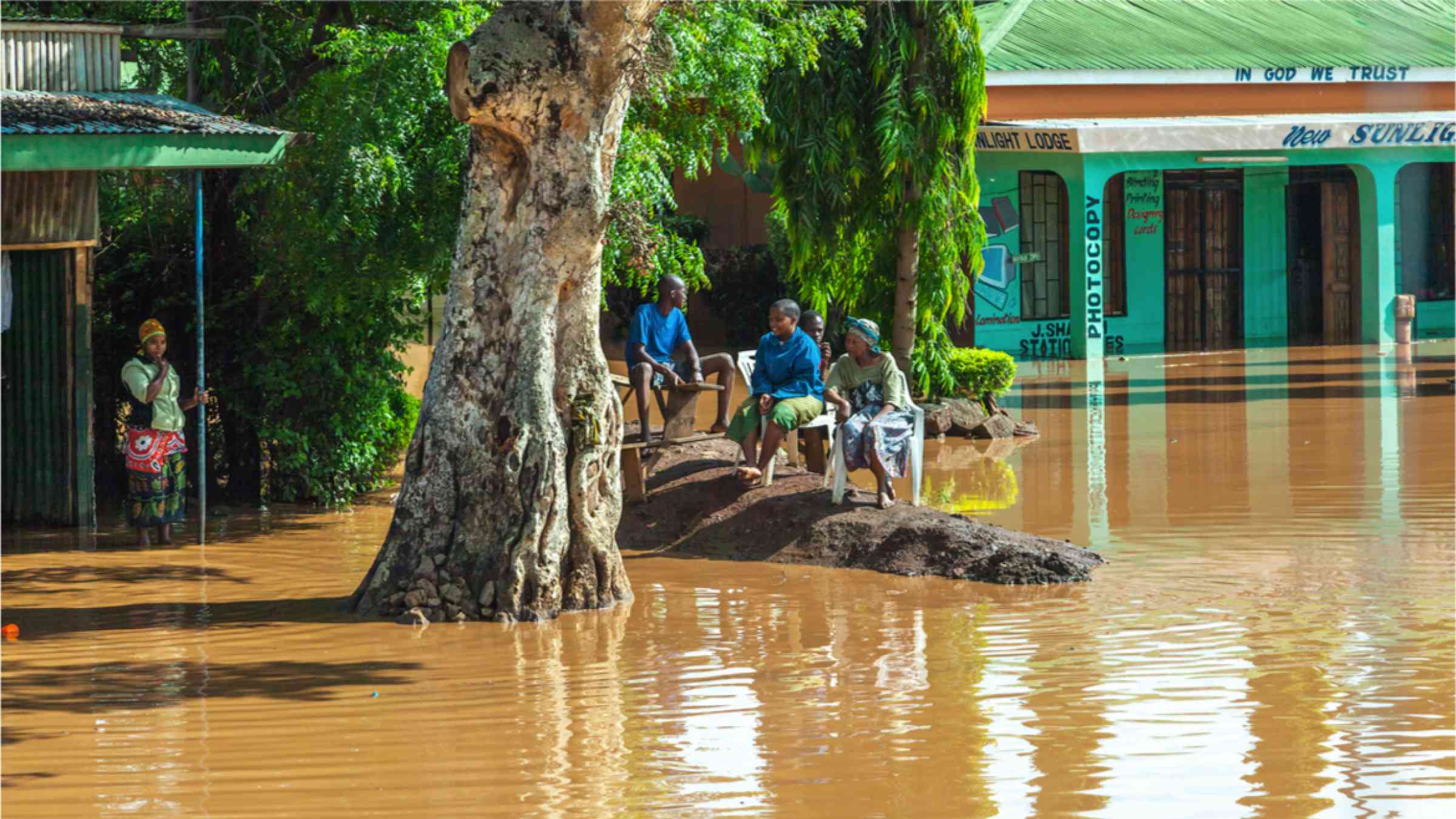Please help us improve PreventionWeb by taking this brief survey. Your input will allow us to better serve the needs of the DRR community.
Staying afloat: New evidence on how firms in Tanzania cope with flooding

In April 2018, cities across Tanzania experienced severe flooding, which displaced over 2,000 households in the country’s commercial capital of Dar es Salaam. By one estimate, the flooding in Dar es Salaam affected up to 1.7 million people, with economic losses equivalent to 4 percent of the city’s GDP. On average, affected households lost 23 percent of their annual income, notwithstanding additional impacts on people’s health and education.
As climate change intensifies and infrastructure planning is outpaced by urban expansion, the frequency of severe floods, as in 2018, is only expected to increase. Recurring weather shocks not only affect households directly, but also impact public services and critical infrastructure systems, affecting workers, businesses, and entire communities. For instance, Tanzania’s power outages increase from an average of 18 hours per month in the dry season to 57 hours in the rainy season – with substantial knock-on effects on service delivery and firm productivity.
As cities flood, businesses bear the consequences
With recent household surveys, we now have a better understanding of how natural shocks affect the well-being and livelihoods of households. However, much less is known about how businesses experience and cope with natural hazards and infrastructure disruptions. This gap makes it difficult for governments to fully assess economic losses after a disaster, and subsequently, identify necessary actions to ensure business continuity. Enhancing private sector resilience to natural shocks not only helps businesses, but also protects workers and consumers.
In a new study, we address this gap by assessing the impacts of natural hazards on Tanzanian firms, with a dedicated firm survey, with which we interviewed over 800 firms across Tanzania. The study shows that flooding is the predominant hazard affecting businesses in major cities across the country. While businesses report relatively low on-site damages from flooding, transport and power disruptions cause over $250 million in losses to firms per year. More importantly, over 40 percent of firms report that workers are unable to come to work due to flood-related transport disruptions.
Results show that firms are keenly aware of these direct and indirect risks of flooding and adapt their operations accordingly. For instance, they adjust their supply networks and inventory holdings to hedge against disruptions. They also invest in costly backup capacity, such as electricity generators and water tanks, to mitigate the impact of disruptions.
Ensuring private sector resilience in the face of increasing floods
As countries are stepping up their efforts to increase their resilience to disasters and climate change, this study highlights a few policy interventions with significant potential to mitigate the negative effects of disaster risks on firms:
- Investing in resilient transport infrastructure can ensure job accessibility, protect supply chains, and reduce loss multipliers. Transport disruptions are key drivers of indirect losses for firms. When roads are flooded and there are no feasible alternatives, workers are unable to come to work, and delivery of supplies and products is delayed, with cascading impacts through the entire supply network. Investing in the resilience of transport networks – starting with the most critical network segments – can help to reduce the propagation of disruptions and costs due to natural shocks.
- Flood prevention can prevent firms from adopting expensive coping measures and promote business continuity. Firms adapt their operations depending on the risks they face. Firms with higher risks of on-site flooding hold fewer inventories, are less likely to own an electricity generator, and have smaller supply networks. Firms that experience more frequent disruptions of infrastructure and service delivery systems tend to have more suppliers and hold larger inventories. These results suggest that firms face a trade-off between avoiding asset losses and bridging disruptions in case of a flood event. Supporting firms to strengthen resilience – both on-site and in their operations – can reduce the need for costly coping measures.
- Governments can play a crucial role in enhancing firms’ financial resilience to natural disasters and speeding up recovery. About 87 percent of firms report that they have not received any financial support in the aftermath of a disaster, and only one percent of firms report having received insurance payouts for damaged buildings, pointing to the potential of a larger role for governments in ensuring private sector resilience to disasters. With limited options for firms to absorb losses and rebuild from disasters, governments can improve access to insurance to help firms cope with disaster losses with a mix of subsidies and regulations. Governments can also support firms to develop business continuity plans to improve overall disaster preparedness.
Complementing existing household survey-based analyses, this new Tanzanian firm survey yields detailed insights on the direct and indirect firm-level costs of natural hazards, along with firms’ decision-making factors to deal with increasing extreme events. More research on firm-level effects of natural hazards is called for to better target policy interventions towards the needs of firms – and the critical goods, services, and jobs which they provide.
Explore further
Please note: Content is displayed as last posted by a PreventionWeb community member or editor. The views expressed therein are not necessarily those of UNDRR, PreventionWeb, or its sponsors. See our terms of use
Is this page useful?
Yes No Report an issue on this pageThank you. If you have 2 minutes, we would benefit from additional feedback (link opens in a new window).